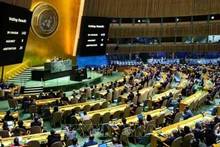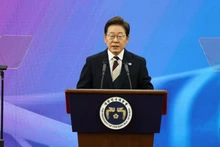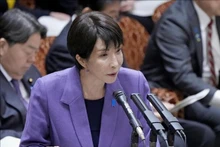


Political parties in Japan have officially entered the campaign period for the House of Representatives election scheduled to take place on February 8. This will be the first election since the Liberal Democratic Party (LDP) ended its 26-year alliance with Komeito and formed a new ruling coalition with the Japan Innovation Party (JIP).

The coalition forces have completed their withdrawal from bases on the territory of the Iraqi federation, marking the end of the first phase of the US-led military mission against the self-proclaimed Islamic State (IS) in Iraq.

The latest meetings between Russia and the US, as well as trilateral talks involving Ukraine, show that channels of dialogue are being maintained, but they remain insufficient to produce substantive change.

In recent years, India has not only emerged as a successful model of economic development but has also steadily enhanced its standing on the global geopolitical chessboard. A balanced and independent foreign policy is widely seen as a key factor enabling the country to remain steady in a fragmented, competitive, and uncertain world.

Thousands of the world’s most prominent figures in fields of business, economics, and politics are gathering on Davos, a small town in the Swiss Alps, to discuss a wide range of global pressing issues.

The prospect of the US and the European Union (EU) imposing tariffs on each other — amid Washington’s ambition to secure control of Greenland — is exposing fresh fractures within the North Atlantic Treaty Organization (NATO).

After more than 25 years of arduous negotiations and several moments on the brink of collapse, the trade agreement between the European Union (EU) and the Southern Common Market (MERCOSUR) has finally been signed, laying the foundation for one of the world’s largest free trade areas.

US President Donald Trump has recently unveiled a draft bill for the Great Healthcare Plan. The proposal has been described by analysts as bold, aiming to enhance transparency, eliminate hidden commission practices, and reduce the burden of medical costs — for the health and wellbeing of the American people.

The global trade landscape is witnessing significant upheaval as protectionism has continued to spread. However, new trends are also gradually emerging and becoming increasingly clear, most notably the increased negotiation and signing of free trade agreements (FTAs) by various countries, creating a “shield” to protect their economies.

The World Economic Forum (WEF) has recently released a report showing that the global labour market has undergone significant upheaval in recent years and is set to change even more rapidly.

German Chancellor Friedrich Merz is set to pay his first official visit to India since taking office early next week. The trip not only signals an adjustment in Berlin’s strategic thinking but also highlights New Delhi’s increasingly prominent role in Europe’s long-term calculations.

With the situation of a declining population, rising prices, and impacts of intense strategic competition, 2026 is forecast to be a year with few advantages for Japan. However, Prime Minister Takaichi Sanae affirms that with its inherent strength and the people's will to rise, Japan will welcome a bright future.

The European Union (EU) enters 2026 facing numerous challenges stemming from the multi-layered crises of 2025: internal fractures, the burden of providing financial and military support to Ukraine, and security pressures, among others. With a number of major elections set to take place in 2026 — widely seen as shaping Europe’s geopolitical position — the bloc is placing greater emphasis on strengthening its internal resilience and strategic autonomy.

Amid intensifying strategic competition among major powers, mediator diplomacy has emerged as a notable trend, contributing to the shaping of the international relations landscape.

The United Nations General Assembly has just approved the organisation’s regular budget for 2026, totalling 3.45 billion USD. This modest budget signals an extremely challenging year ahead for the world’s largest multilateral organisation, requiring it to manage resources with great care to cover its expenditures.

In his New Year message, President of the Republic of Korea (RoK) Lee Jae Myung outlined a vision for the development of the Northeast Asian nation, with a pledge of turning 2026 into the first year of a national leap forward.

As the Gaza Strip residents prepare to welcome the New Year, they harbour hopes that peace will become a reality, following the establishment of a ceasefire after more than two years of conflict.

Only seven countries meet the PM2.5 threshold recommended by the World Health Organisation (WHO), while more than 90% of countries exceed safe levels, according to the World Air Quality Report 2025 released by IQAir.

In 2025, South Asia remained a hotspot of conflict and instability on the global map, marked by confrontations between neighbouring countries, political crises, and the growing imprint of major-power strategic competition.

At the Summit of the Central Asia plus Japan Dialogue (CA+JAD), the Tokyo Declaration was issued, setting out an ambitious roadmap to promote cooperation across multiple fields between one of Asia’s leading economies and a region rich in potential. Japan and the five Central Asian countries agreed to enter a new phase of cooperation, elevating their ties to a broad and multidimensional strategic partnership.